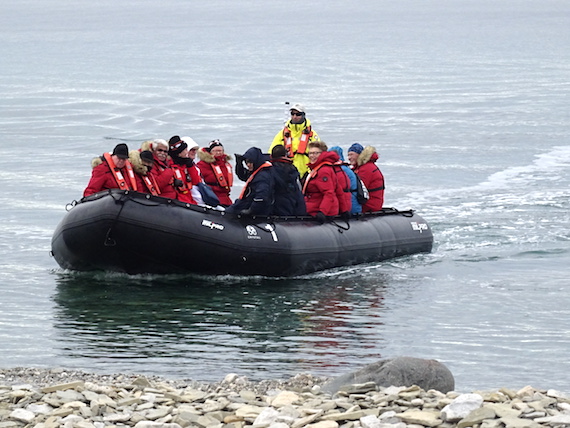Nunavut government strikes new tourism partnerships
“It’s a growing industry and we want more Inuit involved.”

The Government of Nunavut has signed on to two new efforts to try to beef up the territory’s tourism industry.
One agreement is with the Association of Arctic Expedition Cruise Operators. It calls for both parties to work in tandem to grow cruise ship tourism in the territory.
The other agreement is with the Indigenous Tourism Association of Canada. It calls for a three-way partnership among the Department of Economic Development and Transportation, Travel Nunavut and the association to help the territory benefit from an increased demand for “authentic Indigenous tourism experiences.”
Both agreements were signed at the Spirit of the Arctic tourism summit held at Iqaluit’s Frobisher Inn this week.
In each case, the agreement signed was a memorandum of understanding, which is not legally binding.
The cruise ship agreement, signed on Tuesday, outlines several initiatives. These include an Inuit cruise-training program called “Nalunaiqsijiit,” as well as community workshops and data-sharing protocols.
As well, the agreement says the parties will cooperate in developing site-specific guidelines with input from the Inuit Heritage Trust and the Department of Culture and Heritage.
David Akeeagok, Nunavut’s minister of economic development and transportation, said the GN is committed to diversify and improve economic opportunities to “encourage self-reliance and provide local employment in the cruise ship industry.”
The Indigenous tourism agreement, signed on Wednesday, calls for the parties to meet annually to discuss projects that they could work together on and establish budgets for those projects.
“Tourism is a possibility for every community in Nunavut,” said Bernie MacIsaac, deputy minister of economic development and transportation.
“It’s a growing industry and we want more Inuit involved. Also, more people want authentic experiences. Inuit can provide these experiences and enjoy the land at the same time. This MOU is a significant step to realizing these goals.”
Some of the agreement’s priorities include supporting the development of Inuit tourism products and experiences, providing training and mentorship, as well as aligning their strategies to leverage funding.
The plan is for the three organizations to work together to help Inuit tourism businesses and potential business owners access business development training programs and mentorships, as well as “mutually invest” in ITAC’s Product Development Micro-Grant program.
That micro-grant program paid out $418,000 in 2018 to 65 businesses in 13 provinces and territories.
Marketing is another key objective in this three-way agreement.
They plan to advertise tourism packages with Destination Canada and through ITAC, as well as sell Nunavut tourism packages online.
“One in three international visitors in Canada is interested in Indigenous tourism experiences,” said Keith Henry, ITAC’s CEO, at a news conference on Wednesday.
This figure, 37 per cent, is sourced from a 2018 study ITAC and Destination Canada published called Destination Canada Market Snapshots for Indigenous Tourism. It relies on data from Statistics Canada and Global Tourism Watch.
The agreement refers to a recent research report commissioned by the Conference Board of Canada that found there are 107 Inuit-owned tourism-related businesses (with more than 51 percent Inuit ownership) in Nunavut.
These could be in accommodation, food and beverage, transportation, arts and heritage, outdoor adventure or retail.
“While this number proves very promising, much work is needed to assist many of these businesses to reach their full potential,” said the agreement.
“Working collaboratively, we are confident that we can support and grow the Inuit tourism sector in Nunavut.”